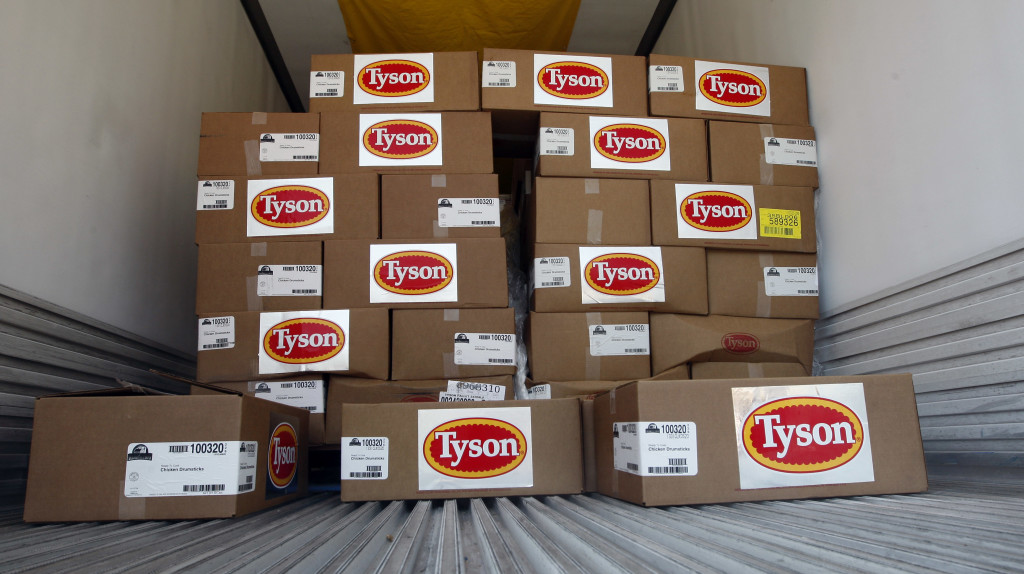The Nation’s Biggest Chicken Seller is Moving Away from Antibiotics

April 28, 2015
Share
In a nod to growing concerns about the use of antibiotics in the food supply, Tyson Foods, the nation’s largest seller of chicken, announced Tuesday that it will nearly eliminate from its chicken production the use of antibiotics that are medically important for humans.
In general, food manufacturers have used antibiotics to treat and prevent disease. Today, up to 70 percent of antibiotics now sold in the U.S. are used in food animals, but as public health advocates have long warned, the more such drugs are used, the more they may be fueling the rise of potentially deadly antibiotic-resistant bacteria.
Tyson, which accounts for about 22 percent of U.S. chicken production, said it would look to end the use of “human antibiotics” by September 2017. The company said it has already cut the use of the drugs by 80 percent to treat its broiler chickens.
“Antibiotic resistant infections are a global health concern,” said Donnie Smith, president and CEO of Tyson Foods in a statement. “We’re confident our meat and poultry products are safe, but want to do our part to responsibly reduce human antibiotics on the farm so these medicines can continue working when they’re needed to treat illness.”
With the move, Tyson joins competitors such as Perdue Foods, as well as chains such as McDonalds, Chipotle and Chick-fil-A, in turning away from antibiotics.
“This is some of the most exciting news that I’ve heard on this issue in years,” said Lance B. Price, director of the Antibiotic Resistance Action Center at The George Washington University. “Tyson is the largest meat and poultry producer in the US, so when they commit to dramatically reducing—and move towards eliminating—human antibiotics in their chicken production system over the next two years, that’s a big deal!”
Yet despite measures taken by companies like Tyson to move away from antibiotics, data from the Food and Drug Administration released in October show are actually up 16 percent in the U.S. Meanwhile, worldwide, the use of antibiotics in livestock is predicted to rise an estimated 67 percent, according to a March study in the Proceedings of the National Academy of Sciences.
Related Film: The Trouble with Antibiotics
FRONTLINE investigates the growing crisis of antibiotic resistance.

Related Documentaries
Latest Documentaries
Related Stories
Related Stories
Explore
Policies
Teacher Center
Funding for FRONTLINE is provided through the support of PBS viewers and by the Corporation for Public Broadcasting, with major support from Ford Foundation. Additional funding is provided the Abrams Foundation, Park Foundation, John D. and Catherine T. MacArthur Foundation, Heising-Simons Foundation, and the FRONTLINE Trust, with major support from Jon and Jo Ann Hagler on behalf of the Jon L. Hagler Foundation, and additional support from Koo and Patricia Yuen. FRONTLINE is a registered trademark of WGBH Educational Foundation. Web Site Copyright ©1995-2025 WGBH Educational Foundation. PBS is a 501(c)(3) not-for-profit organization.




















